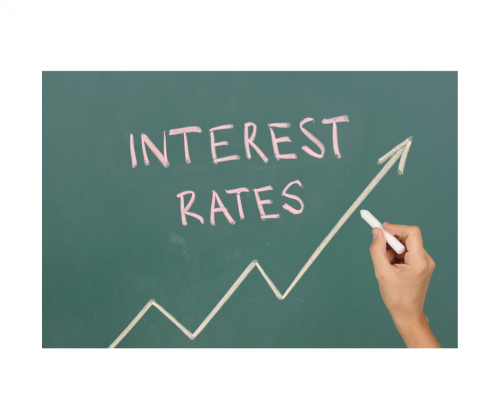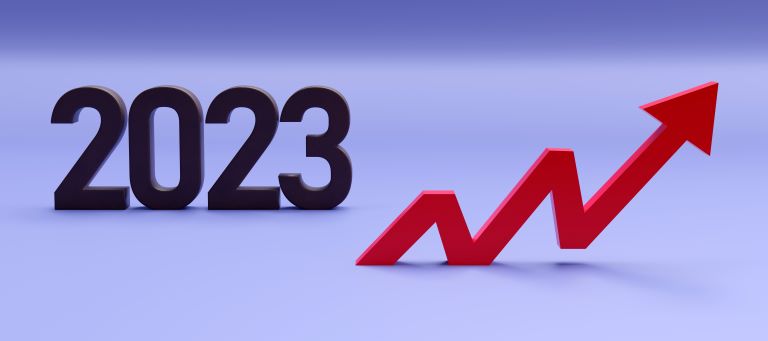Help Clients Reduce the Downward Pressure on Wallets

Is the Grinch in the house? The interest rate hikes just haven’t stopped in 2022. On December 7, the Bank of Canada (BOC) increased policy interest rate again by 50 basis points, leaving many Canadians worried about the effect on their finances in 2023. Currently, the overnight rate is 4¼%, with the Bank Rate at 4½% and the deposit rate at 4¼%. But this translates to much higher costs on various debt transactions: operating lines, lines of credit and mortgages. Is there a silver lining?
What Does this Mean for Canadians?
With interest rate hikes, and inflation (last check it was 6.9%), everyone can agree their budgets – personal and business - need to be revisited. It’s the new normal for at least for the next 12-18 months.
Advisors, clients may be particularly worried about mortgage renewals for those on variable rate plans. How much will a new mortgage payment be if interest rates moved from say 2.3% to 5.9%? Ratesdotca has a great calculator to help. In the case of a $500,000 mortgage the interest payments will rise from $2198 a month to $3169. . .$971 dollars more or 44%. That’s $11,652 of reduced lifestyle for the year.
Clearly it’s essential to comb through the fallout from the high interest rate environment. Here are some straightforward talking points:
Pros and Cons of Higher Inflation:
In moderation, inflation can increase wage growth and the return on certain investments – GICs for example.
For new home buyers, current interest rate hikes are expected to cool an overheated housing market. Will prices go down significantly? If yes, the higher interest rates on mortgages could be offset by significant housing cost reductions. Don’t forget new tax credits available to new home buyers, too.
Watch the term of both investments and debt – both inflation and interest rates are expected to subside in a couple of years – what is the correct decision on renewing debt and fixed term investments in that case?
Businesses can adjust (increase) their pricing to customers to meet new economic standards but how will that affect revenues? It makes the landscape uncompetitive, which can have detrimental effects on the economy.
It gets worse. Hopefully, product demand will not diminish in 2023. If it does, how does this affect debt repayment? More important, how does it affect the sustainability of the business itself?
High inflation can be cooled by higher interest rates, but with costs rising for everyone in the economy the pain may be too much for some. Canada could suffer the loss of a significant portion of its small business community – many may just shut their doors, as reported last fall by the CFIB, and with that economic development, and employment within their communities. It should cause concern for employees, investors and financial institutions.
But governments should be concerned too. Business closures mean fewer tax revenues, both on the personal and the corporate side. For more on potential revenue consequences, Knowledge Bureau’s take on the economy, inflation and the most recent Federal mini-budget check out: Fall Economic Statement & Mini Budge - Special Report.
Be Proactive: Do a Full Review with Clients (and let the numbers tell the story)
Four questions to consider:
- What are your main concerns about your finances in 2023?
- On a scale of 1-10 how concerned are you?
- How satisfied are you with progress towards your financial goals and the state of your net worth?
- Would you like to discuss ways to take advantage of the higher interest rate environment?
- Are you interested in discussing how to minimize personal taxes for family units as a whole with never-to-miss deductions and credits, and revisit critical investment strategies?
Reduce Taxes Where Possible
We talk about this pretty consistently at Knowledge Bureau. Some immediate deliverables before year end:
- Recover tax filing errors and omissions before December 31. There may be missed refunds, unclaimed tax credits and unreported capital losses that can be deployed to shore up wealth.
- Review the December 15 quarterly instalment remittance. Is it necessary? Can it be reduced?
- Take advantage of all the tax deferral opportunities possible with a review of RRSP, TFSA contribution room
- Give to charity – it’s the gift that gives back tax filing reductions – to provide welcome cash flow relief in the new year.
How to Reduce Borrowing Costs With Tax Efficiency
Reduce or Eliminate OAS Clawbacks
The government also has a decent section that helps sort out tax inefficiencies depending on life stage, sole proprietor vs corporation and breakdown of nonrefundable and refundable tax credits.
Bottom Line
Add value proactively! Help your clients get prepared for 2023. Join us for an in-person Tax Summit on February 7 in Toronto to discuss: Advanced T1 Tax Update 2023 for 2022 T1 Returns. Or attend the Virtual Summit , same topic, on January 18. We'll cover: ADVANCTED T1 TAX UPDATE.
Evelyn Jacks is Founder and President of Knowledge Bureau, holds the RWM™, MFA ™, MFA-P™ and DFA-Tax Services Specialist designations and is the best-selling author of 55 books on tax filing, planning and family wealth management. Follow her on twitter @evelynjacks.
©Knowledge Bureau, Inc. All rights Reserved